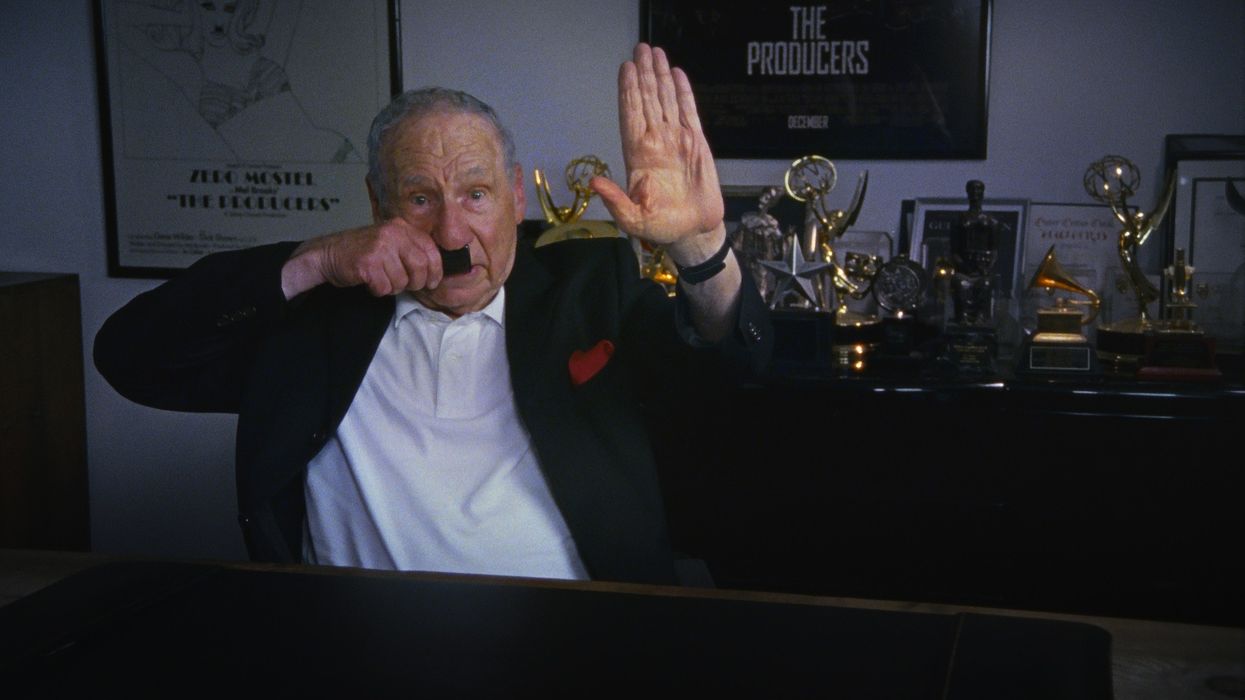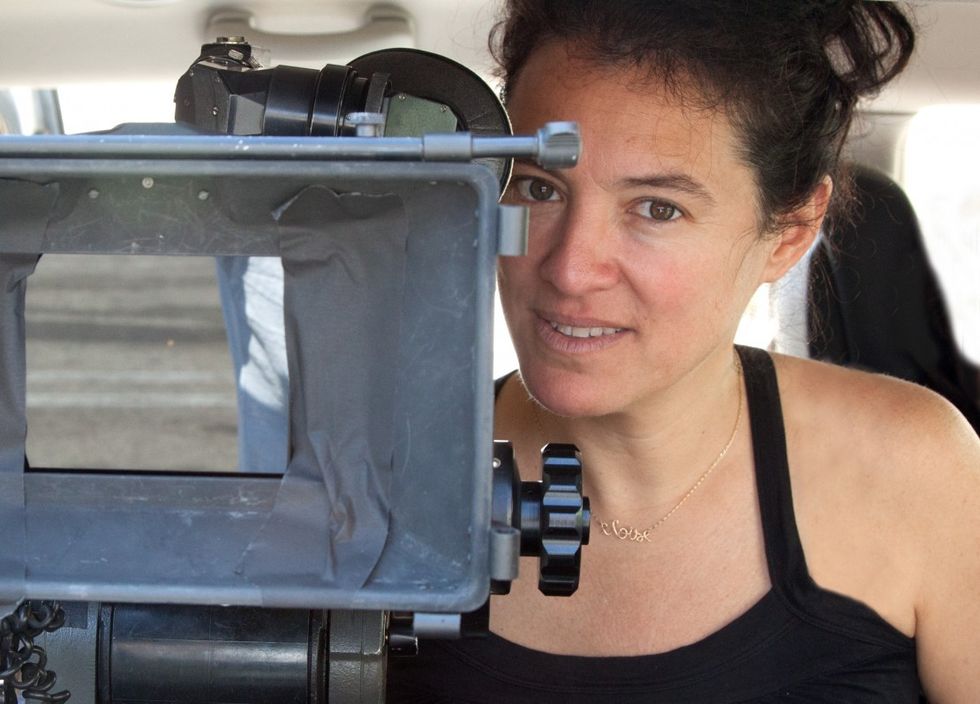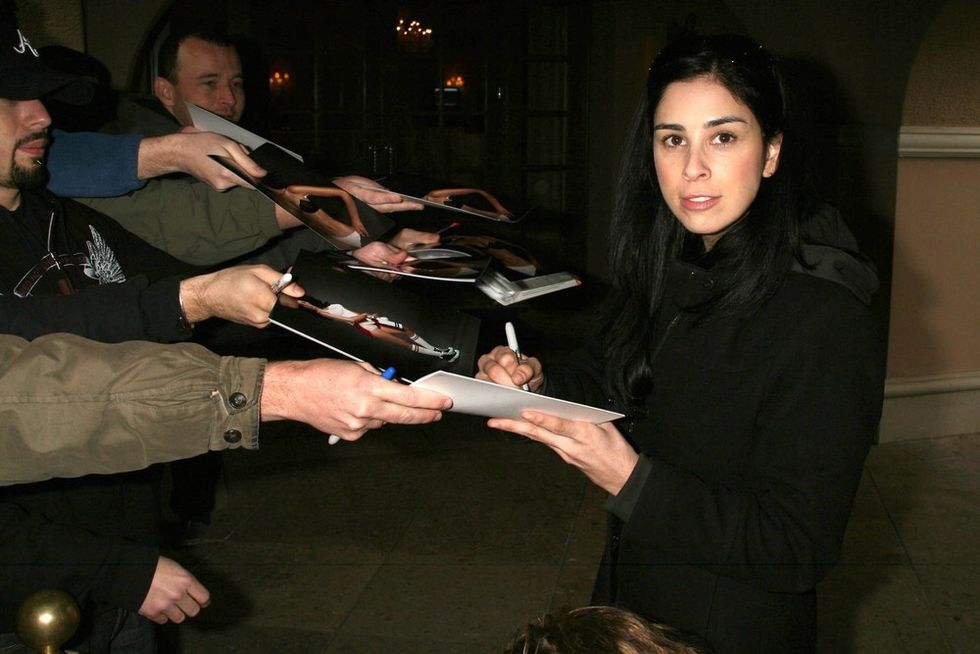Why Do We Joke About Horrible Things? 'The Last Laugh' Asks Mel Brooks, Sarah Silverman & More
Anti-Semitism is not funny, and yet comedians love to joke about it.

What makes horrible things like Nazis such an enticing target for comedians? Ferne Pearlstein explores the paradox of not-funny funny things in her new documentary The Last Laugh. Centering on the unique relationship between comedy and the Holocaust, while making detours into areas like 9/11 humor and Lenny Bruce, the film features interviews with influential figures like Mel Brooks and Sarah Silverman, along with testimony from Holocaust survivors about their understanding of humor.
Following the film’s April 18 premiere in the Spotlight section of the Tribeca Film Festival, No Film School spoke to Pearlstein about shooting documentaries on 16mm, lining up big-name interviews, and why interviewing Brooks was like Russian roulette.
"There’s a certain way you have to think when you shoot in film. You can’t just fire-hose the footage like you do when you’re shooting digitally. You have to think ahead."
NFS: You shot this documentary on 16mm. What was the reason for that, and was it worth the headache in the end?
Pearlstein: I am a complete and utter filmaholic and film snob, and I own my own camera. I’ve been working as a cinematographer since I finished film school in 1993, and I’ve just always preferred to shoot in film. It’s not just for the aesthetic reasons.
Especially with documentary, more so than narrative, I love that there’s a certain way you have to think when you shoot in film. You can’t just fire-hose the footage like you do when you’re shooting digitally. You have to think ahead; you have to plan for what you want and say, "Okay, for this I’m going to get in two rolls. This, I only can afford to do one roll." There’s something about the challenge of getting what you want in that constraint that really gets me excited.

Pearlstein: You have to get your questions right, and you have to know which questions you might be able to cover with just audio. You have to know, "Okay, this is Mel Brooks, it’s once-in-a-lifetime, so I’ll do five rolls if he’ll let me." Or, someone like Sarah Silverman only gave me a certain amount of time, so I knew I had to get it in three rolls.
Also, in that time constraint, if she says, "You only have 30 minutes," I have to allow for time to change the camera. So I can’t make mistakes. That makes it harder. But I didn’t not get any of the questions I wanted in the interviews, and most of the interviews I shot I’d say I averaged three rolls.
"I saw The Aristocrats, and I saw they were making 9/11 jokes, and I realized, 'Okay, people are ready to make this film.'"
NFS: This movie seems to have a lot of aesthetic similarities to The Aristocrats. Did you look at that movie or other documentaries on comedy?
Pearlstein: Absolutely. I’ve tried to make this film since 1998, and it was really difficult because of the subject matter. Over time, there has been more use of comedy or satire in relation to difficult subjects, and there were times I tried making the film and I couldn’t get anybody interested. I couldn’t get to the comedians. And I saw The Aristocrats, and I saw they were making 9/11 jokes, and I realized, "Okay, people are ready to make this film." That was 2005—it still took me six more years, until the summer of 2011, to get funding.
NFS: Was it easy to line up the interviewees?
Pearlstein: No. [Laughs] There were some people that were easier than others. My husband, who’s a director and screenwriter, has an agent at CAA. So we got the money at the end of the summer, and after Labor Day, we pressed his agent for help. A lot of the comedians we talked to were like, "Sounds great, let us know when somebody else goes first." Nobody wants to be the first one.
Then the agent called up Rob Reiner, and he said, “Sure, I’ll do it a week from Wednesday.” All we had at that point was a check in the bank, and he lives in L.A. and we live in New York. So we had to come up with a crew on the spot, in L.A., and come up with things to shoot.
"I knew I didn’t want to make a talking-head-and-clips film."
Sometimes we were getting other comedians through the people that we worked with. After we’d already filmed Mel Brooks and edited a section of him and Sarah Silverman next to each other, we sent him the clip and he sent it to her and straight-up asked her to do it. That’s how we finally got a yes from her, who was one of the hardest ones to get.

Pearlstein: Yes and no, because at least in a fiction film, I don’t think you need as many characters. [Laughs] Rob Reiner brought so much respect to the project because everybody loves him. Once he said, “Oh, this is fine to do,” others were willing to jump on board. We interviewed at least 30 people.
"I was looking for a [Holocaust] survivor who thinks it’s okay to laugh, but also a survivor that says it’s not okay to laugh."
NFS: The Holocaust survivor Renee Firestone becomes very central to the narrative. Did you know from the beginning you wanted to structure it around her?
Pearlstein: I knew I wanted to structure it around some sort of observational story, whether it was a survivor’s story or a child of survivors. I knew I just didn’t want to make a talking-head-and-clips film.
I had been researching for years for people to talk to, and one of them was Hanala Sagal, who was one of the writers of Elvis & Nixon. I [told her] I was looking for a survivor who thinks it’s okay to laugh, but I’m also looking for a survivor that says it’s not okay to laugh. But I was also interested in this second generation because there’s this whole wealth of dark humor they only tell amongst themselves and their parents. She found the perfect two people: Renee Firestone and her daughter Clara, who is the head of Second Generation Los Angeles, a support group. Their dynamic was great and funny, and Renee was very willing to talk and think about these things. It was clear she had a very good sense of humor.
"[Interviewing Mel Brooks] was a little bit like playing Russian roulette."
NFS: I have to ask you about interviewing Mel Brooks. Walk me through that.
Pearlstein: It was a little bit like playing Russian roulette. I had so many questions for him and he didn’t have a lot of time to give me. I was asking a lot of obscure questions in the beginning that weren’t about The Producers, and after the first roll of film he was like, "What are you doing? You can’t not ask about The Producers!" I really wanted certain anecdotes, and I felt if I waited 'till the end I wouldn’t get them. We got the really amazing stories first, and then talked about The Producers and it re-energized him.
I will never forget this: at the end, he put his hands on my face and kissed me three times and said, "Good job, Pearlstein!" And I was like, "Okay, I can retire now."
Be sure to check back for more coverage of Tribeca 2016.











